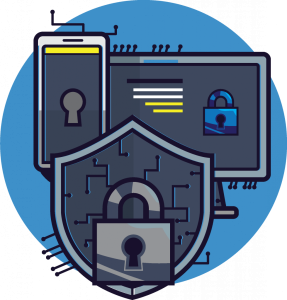Cyber-attacks detection and prevention
5. Conclusion
I firmly believe that cyberspace must not become an environment where any crime can be committed with impunity. On the other hand, the rules and conditions need to be set so that it does not become an environment in which censorship and repression prevail. Balancing these two levels is a key prerequisite for applying and, in particular, respecting the rules in cyberspace, whether legal or moral.
With regard to the application of possible criminal law norms to certain types of cyberattacks, it should be noted that it is not possible to prosecute by criminal law such conduct, no matter how dangerous, that is not enshrined in the criminal codes of a country. Criminal law is an ultima ratio means and as such must be very precise so as not to interfere with the rights and freedoms of individuals to a greater extent than is strictly necessary.
In addition to the state, the protection of cyberspace and its users is handled by various private organisations. I believe that if we want to fight cybercrime effectively, there should be more effective cooperation of private organisations (especially IT experts, CSIRT teams, etc.) with public (state) administration, or with law enforcement authorities, so that it is possible to respond in a timely and adequate manner to increasingly sophisticated forms of cybercrime or cyberattacks.
As I mentioned in the introduction: “Life without information and communication technologies is now inconceivable or impossible for our society.”
My view is that there is no point in getting rid of ICT and the services associated with these technologies. The purpose of this monograph was not to force users to uninstall Facebook and not use Google or other services. The purpose was to draw attention to the possible risks associated with the use of information and communication technologies and related services. In this context, it is necessary to recall the quote Scientia estpotentia (knowledge is power).In the case of ICT and related services, it is necessary to know what these technologies and services represent, what they do and what they are used for.
The reduction of negative phenomena in cyberspace and the effort to change must necessarily begin with end users because in cyberspace it is they who are the typical first victim of an attacker. At the same time, users are an authority that can define what services, data or information will be searched, stored and provided in cyberspace.
I believe that the education and training of users should be an essential part of the penetration of information and communication technologies into our lives. Building information literacy should be inextricably linked to the creation, distribution and promotion of products or services that are associated with information and communication technologies. The actual education in this area, or rather learning about possible threats, risks and drawbacks posed by IT, should be part of the teaching of all forms of study at all levels of education.
“Nobody made a greater mistake than he who
did nothing because he could do only a little.”
Edmund Burke
